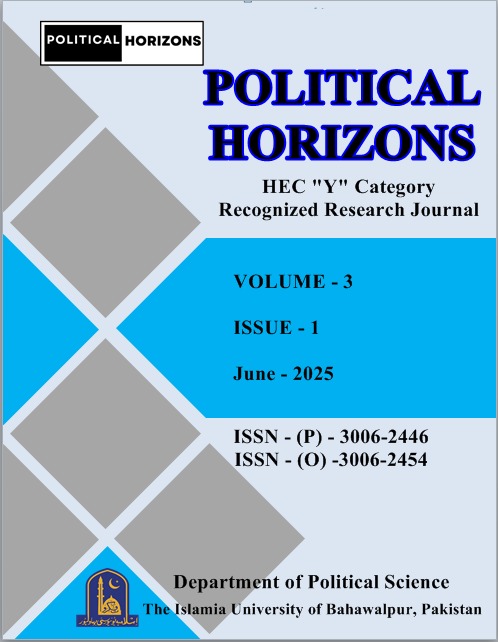Assessing Workplace Harassment Practices and Violence: A Case Study of Working Women in Bahawalpur District
Abstract
Workplace harassment and violence remain pervasive yet underexplored challenges, particularly within patriarchal societies where structural inequalities constrain women’s autonomy and mobility. Despite increasing global advocacy for gender equity exemplified by movements such as #MeToo; such issues continue to affect women across professional sectors in many developing countries. This study investigates the multifaceted impact, social, economic, and psychological of workplace harassment experienced by women in the Bahawalpur District of Pakistan. The research aims to identify the forms and frequency of harassment, evaluate its psychological, social, and professional consequences, assess the level of awareness regarding legal protections (particularly the Protection Against Harassment of Women at the Workplace Act, 2010), examine coping strategies, and analyse the effectiveness of institutional responses and preventive mechanisms. Employing a qualitative case study design, data were collected through semi-structured interviews with 20 female employees from both public and private institutions. Thematic analysis revealed recurring instances of verbal and physical harassment, often shaped by gendered power dynamics, socio-economic inequalities, and religious identity. While participants expressed general awareness of their rights, they reported a lack of institutional support and limited capacity to seek redress due to entrenched male dominance within workplace hierarchies. Furthermore, familiarity with relevant legal protections was minimal, and formal training on complaint mechanisms was largely absent. The findings highlight the urgent need for institutional reforms, enhanced legal literacy, and the implementation of zero-tolerance policies to ensure safe and equitable work environments for women in Pakistan.
Keyword: Harassment, Sexual harassment, Violence, Working women, Workplace.

Downloads
Published
How to Cite
Issue
Section
License
Copyright (c) 2025 Dawood Nawaz, Ayesha Umar, Shahbaz Ali Khan

This work is licensed under a Creative Commons Attribution-NonCommercial 4.0 International License.




